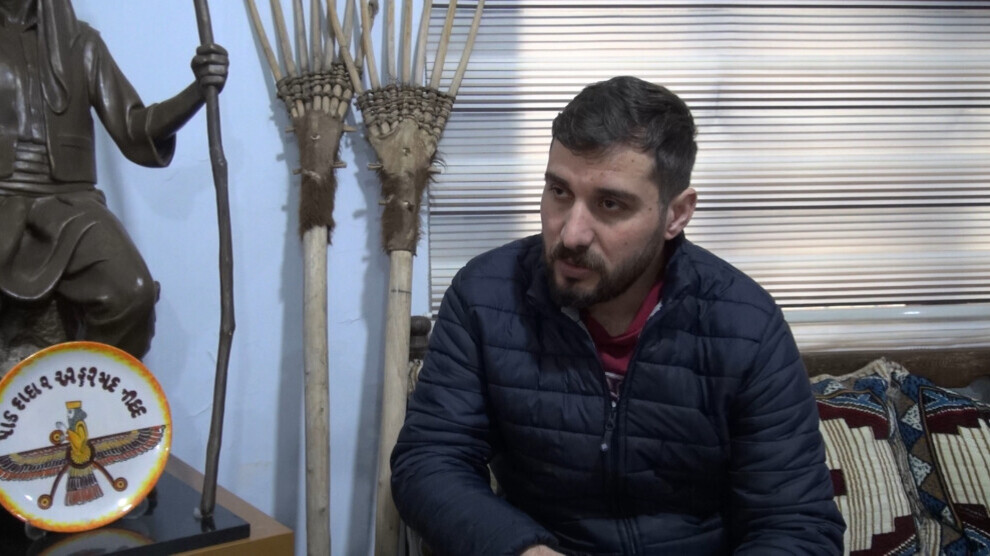The Mesopotamia Cultural Centre is the academy of Kurdish culture
Rênçber Agirî said that the MKM is actually an academy of Kurdish culture.
Rênçber Agirî said that the MKM is actually an academy of Kurdish culture.

Although Kurdish culture and art has been the victim of constant repression, it continues to develop and spread with new techniques. Especially in recent years, we see the interest of young people in this field and their efforts to advance the traditional Kurdish culture.
Rêncber Agirî is one of these young people. Agirî was introduced to dengbêj at a young age and started to work to keep Kurdish culture alive.
Born in a village of Panos (Patnos), in the province of Agirî (Ağrı), Agirî lived with his patriotic family until the age of 15. After moving to Istanbul, Agirî started his professional music studies at the Mesopotamia Cultural Center (MKM).
Agirî summarized his professional music studies process as follows: “I started as a trainee at MKM in 2008. That's when I discovered the baglama and immediately started training. I thought that I should start at MKM in order to better understand what music is, its relationship with history and the present day, the theoretical ground of this field. I moved to Amed in 2015. I continued my education at Aram Tigran Music Academy. After spending one year in this academy, the institution was closed by the trustees appointed to the municipality. Afterwards, we established the MA Music Academy with our own efforts and continued our work there. We were both giving and receiving education. After 3-4 years, I graduated from MA Music Academy. Now I continue my music studies at Dicle & Fırat Culture and Art Association, which continues its activities under the roof of MKM.”
Agirî, who connects his interest in music to being from Serhat and the fact that in every family there is always someone singing strans in this land, said: “In our family, my mother was always singing strans. My mother used to play the cassettes of the dengbêj that came to us and make us listen to them. We grew up being told fairy tales at night. That's why my childhood was important in this sense. It increased my interest in music and Kurdish culture. I can also say that I developed with the efforts of my mother. Of course, those times are described as 'amateur', but I think it is a natural process. Rather than saying that someone is an amateur, it is useful to say that he has a natural musical understanding.”
MKM is the academy of Kurdish culture
Agirî also shared the following regarding the role of the institutions he works with: “The main purpose of these institutions is to be rooted in society. Again, it is to protect a culture and values that are about to disappear and to pass it on to future generations. The MKM and its other branches were born on the basis of preserving and developing the literature, music, folklore and other works of the Kurds that were tried to be assimilated. For example, we were faced with a system that translated children's plays into Turkish in Kurdistan. Bringing back works translated into Turkish or lost to the Kurdish society was the main work of the MKM and similar institutions. Because while society can protect a value that belongs to it from rural areas, it is our duty to do this in the cities. The MKM is actually the academy of Kurdish culture.”
Every song has a story
Rênçber Agirî said that he also tried to do his best for the development of Kurdish culture. “Even though I sang before, I had no knowledge of the content of the song I sang. After I started studying at the MKM, I began to learn information about the content, region and history of every song I sang. For example, you sing a song by getting information about which region it comes from, its folkloric history and other information. To know all these, training is inevitable. This training includes getting to know the instruments, knowing the denbêj, having a good understanding of the dialect and the depth of the words. If you are working in the field of culture, you need to know everything.”